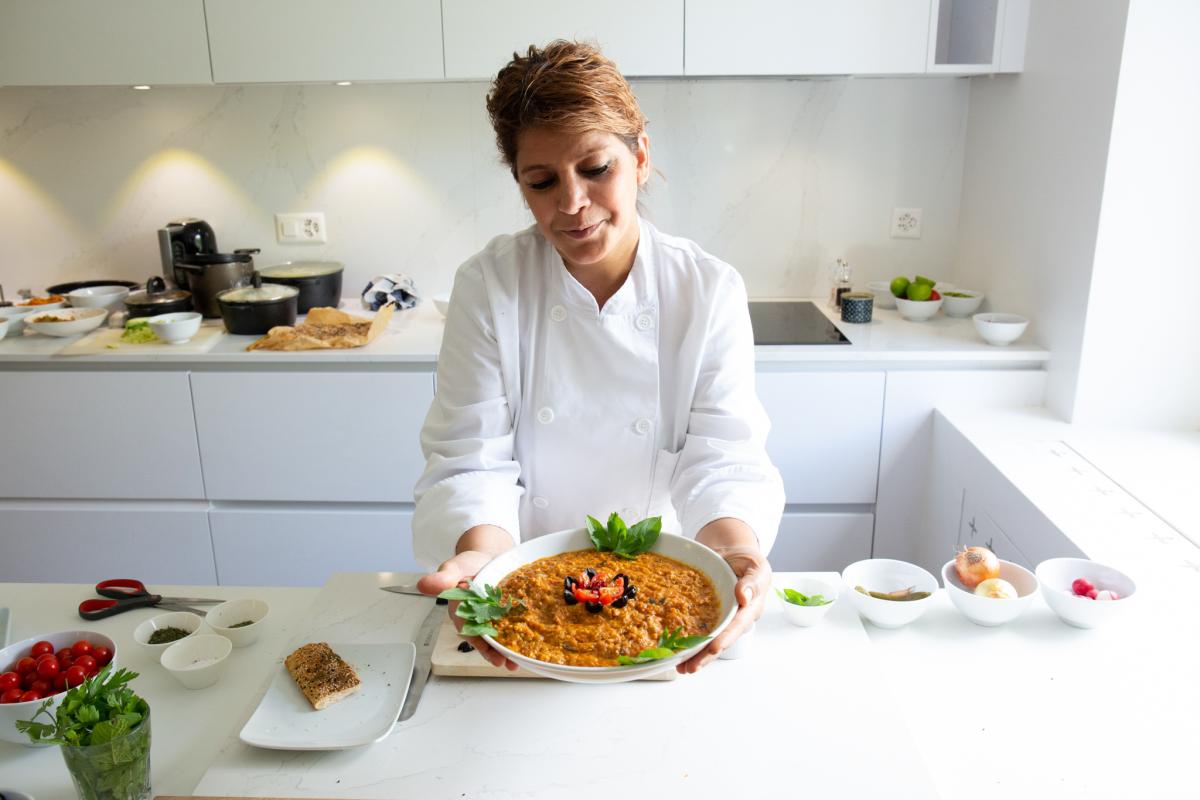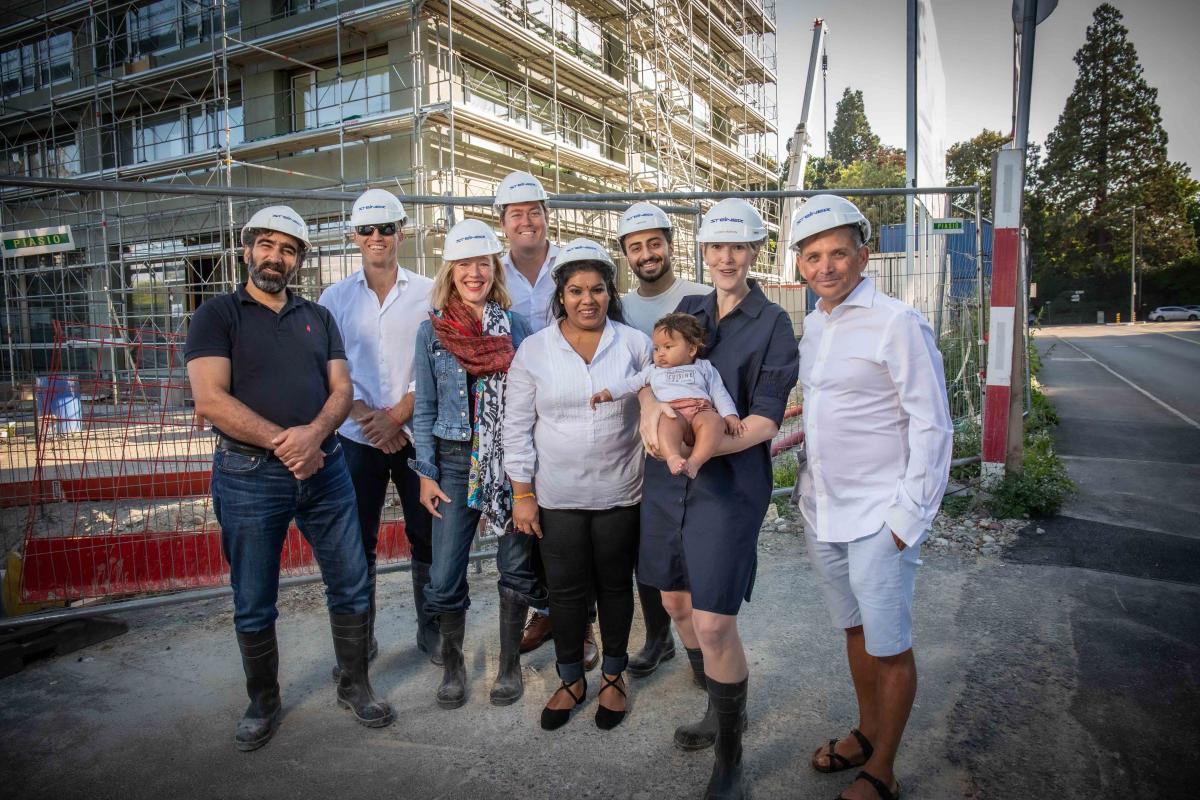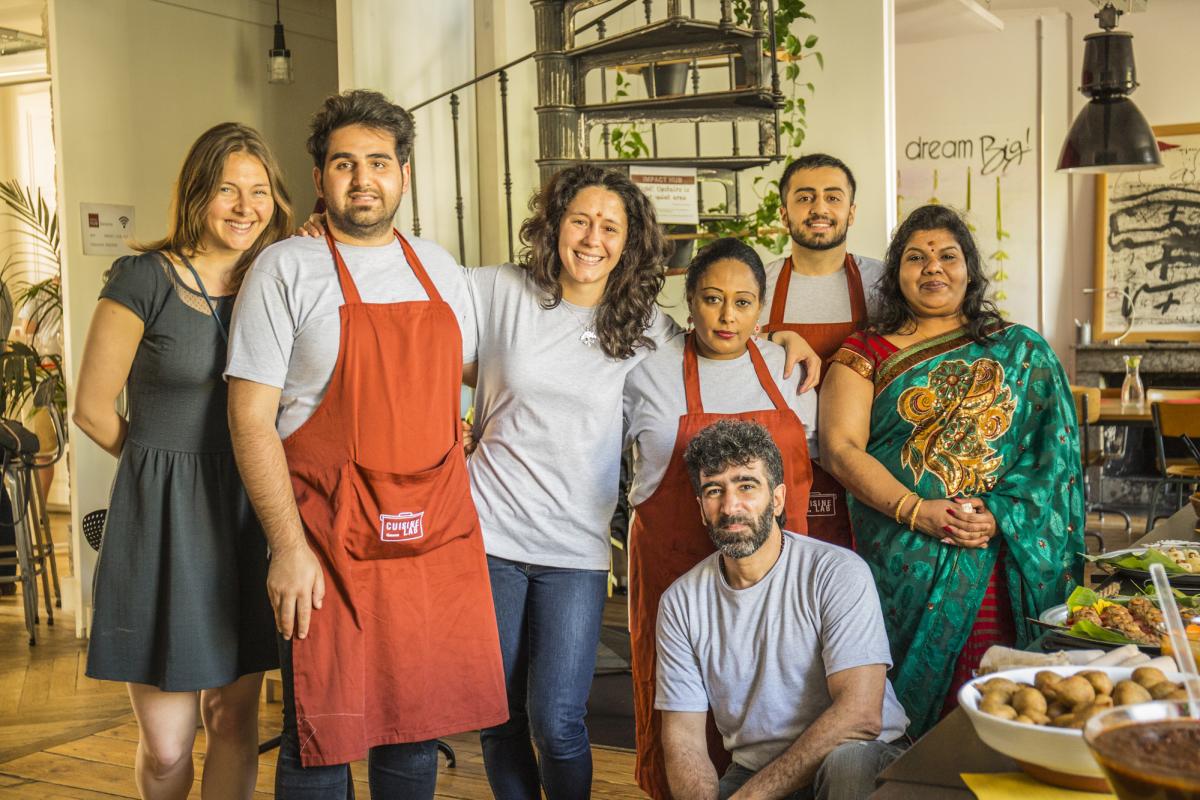One of the goals behind the creation of the Swiss foundation for UNHCR, Switzerland for UNHCR, is to raise awareness in Switzerland about uprooted and displaced people around the world. A few months ago, the foundation celebrated its first anniversary, and while the current state of the world does not exactly warrant festivities, we did want to mark the occasion by launching a series of articles highlighting local actors helping refugees: Standing with Refugees. For our sixth article we met with Sarah Hoibak and Gaayathri Sathasivam, co-founder and chef, respectively, at Cuisine Lab, a social-minded company which provides catering services and employs passionate refugee chefs. Their goal? Assist refugees in developing their professional skills and support their integration into the community through the creation of a social-culinary platform.
Cuisine Lab
First of all, can you tell us more about Cuisine Lab?
Sarah Hoibak : Cuisine Lab is a social and economic integration platform that revolves around the use of food and culinary arts to bring refugees and asylum-seekers, living in the canton of Geneva, closer to the local community. Culinary arts workshops and social events not only allow refugees and asylum-seekers to interact with Geneva residents, but they also give them an opportunity to learn skills that will help them with employment opportunities. With an income, they can become self-sufficient.
We started the Cuisine Lab project 5 years ago, after the peak of the Syrian crisis, a time during which thousands of refugees were forced to flee to Europe. We really felt the need to do something here in Geneva for refugees and asylum-seekers. Dan Stein, co-founder of Cuisine Lab, and I work, or have worked, in the field with international organizations, and are used to seeing the resources needed for overseas operations. But here, we saw a real need to act locally.

What approach do you use?
SH : Cuisine Lab was created above all else to support the cooks who make this project possible. We have never had a top-down hierarchy, in which a segment of the stakeholders tries to impose its vision of things. On the contrary, we have supported open discussion from the beginning.
The organization has developed organically; we wanted to be a social platform, but didn't have clear plans regarding our activities, such as catering. We wanted to provide a place for refugees and asylum-seekers to meet people and get out of their usual environment.
With the COVID-19 pandemic forcing us to take a long break, we had the opportunity to sit together and think about the direction we wanted to take this organization in. Throughout our discussions, there was one wish that consistently emerged; that of having a restaurant, a permanent location to allow for more autonomy. Events and workshops are great opportunities to meet people and share, but they don't offer the same stability as having a permanent location. We were also lucky to work on this project with a team from the University of Geneva's Executive MBA program, who went on to win an award for best project in an internal competition.
Our restaurant, AGORA, will soon be opening at the Cité Internationale du Grand Morillon, giving our chefs a more stable setting, where they will be able to further their expertise and share their culinary skills. In addition, language classes and professional training will be provided to the refugees working there, hopefully giving them a chance to obtain a recognized cuisine diploma (AFP). This new development is in line with the social and economic integration direction that the Cuisine Lab project has been following.
We would love your support, and you can still help up us fund our restaurant!

Why choose this kind of commitment?
SH : Our starting point has always been cooking; food and meals are always and everywhere synonymous with sharing and coming together. In this sense, a meal is not only nourishing from a nutritional point of view, but also a social one. It is a neutral platform around which everyone has something in common: everyone eats and shares bread with others. The beauty of it is that there is such a richness and a diversity in the world's cuisines that there is no end to the things we can discover and share. In the end, we are all human, and eating is one of those deeply human acts around which we can unite.
Gaayathri Sathasivam: The other cooks I work with are people whom I probably would have never spoken to if it wasn't for Cuisine Lab. Through this platform, I have learned a lot from them culinarily-wise, and I think they have also learnt from me! For example, one of the cooks is a Syrian refugee and he loves my Sri Lankan desserts, and I love his baklava. So, we regularly exchange desserts. That shows you how food can bring people together! It's something we all carry with us, something that links us to our home country, but also allows us to make new connections.
Any special memory of this adventure?
GS : I joined Cuisine Lab in 2017, somewhat by chance, after meeting Dan, one of the founders. He was visiting our home, and when he smelled what was on the stove, he immediately asked if he could try it. I believe my cooking made an impression on him. He asked if I would join Cuisine Lab for the Refugee Food Festival. So, from one day to the next, I went from cooking for my family in a small kitchen to cooking for over 700 people, it was amazing!
During these 4 years with the organization, I had the chance to meet a lot of people and discover new things. Between dinners for international summits and embassies, and cooking workshops for children at the International School of Geneva, every experience has been extremely rewarding.
Beyond these experiences, Cuisine Lab has become family. Before, when I was sad or feeling depressed, there was no one I could turn to. Now, I know that if I reach out, I can count on someone to take my hand, to comfort me - just as you would expect a family member to do. At Cuisine Lab, when someone is sick, others will bring them food, run errands, or keep them company. Cuisine Lab is not only about cooking, it is much more than that. I can say without hesitation that the organization has not only changed my life by opening doors, but also allowed me to grow as an individual through all these wonderful encounters.

Why did you choose to be involved?
SH : Every human being on earth should be equal. If I am in a privileged position, where I am able to help others have a better life, why shouldn't I give my time or resources to that end? I am fundamentally convinced that food is a means to helping others, and that it is possible to support social integration through culinary arts.
We are fortunate to be able to support a cause. There are so many people whose lives can be made easier and more enjoyable, and it's not just people on the other side of the world, but also here in Geneva. If you have something to give, why not give it?
Any piece of advice for people who want to get involved?
SH : Before anything else, ask yourself: where is the problem? That's how Cuisine Lab started. It wasn't about giving a pre-established solution to an existing problem, but rather identifying a problem that hadn't been identified yet. Our initial observation was that many people living in civil protection shelters did not have the opportunity to meet people outside of that setting, and thus to integrate the community. We also noticed that many of them talked about the difficulty and the few resources available to cook. It is through that observation that we explored together the possible solutions to the problems.